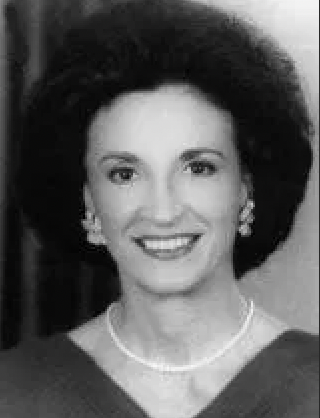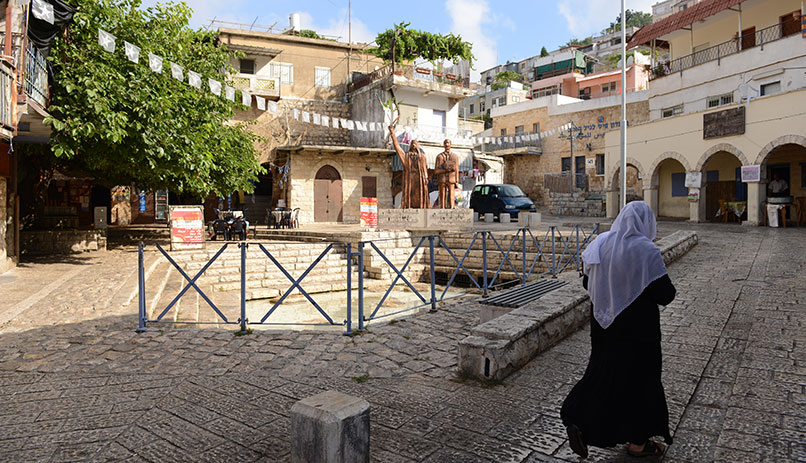Pathbreakers of Arab America--Eighth in Series: Selwa Showker Roosevelt

By: John Mason / Arab America Contributing Writer
This is the eighth in Arab America’s series on American pathbreakers of Arab descent. The series includes personalities from entertainment, business, sports, science, academia, and politics, among other areas. Arab America highlights our eighth pathbreaker, Selwa Showker Roosevelt, Arab American, former prestigious head of U.S. diplomatic protocol, and proud daughter of Lebanese Druze immigrants. She brought her fine cross-cultural skills to the job of negotiating with foreign leaders around the Byzantine halls of diplomatic Washington.
Selwa Carmen Showker “Lucky” Roosevelt — Met all the challenges of organizing Department of State diplomatic events and managing conflicting personalities and cultures
Selwa was born on January 13, 1929, in the city of Kingsport, Tennessee, the daughter of Lebanese Druze immigrants, Salim Showker and Najla Showker. She lived there until her marriage in 1950 to Archibald “Archie” B. Roosevelt Jr., a grandson of President Theodore Roosevelt. They were married for forty years until her husband died of heart failure in 1990.
Selwa was an honors graduate from Vassar College, after which she worked as a journalist for The Washington Evening Star and a freelance writer for numerous magazines. She was Chief of Protocol of the United States for almost seven years, from 1982 to 1989—longer than anyone else has ever served in that position. As Chief of Protocol, Lucky, her nickname, organized over 1,000 visits of world leaders to the United States and directed the restoration of Blair House, the President’s guest house.
Interviewed by the Association for Diplomatic Studies and Training, Selwa noted that her family name was ‘Choucaire,’ anglicized to Showker by her father. She reported, “My parents were from the Druze — the tribes that were really sort of an aristocracy of Lebanon at one time. They held the balance of power between the Christians and Moslems and the Druze are very special. They have a great history, they think, and they are proud people like mountain people everywhere.”

Selwa further reported, “My family’s village is a place called Arsoun, and the only other prominent person that you’ve heard of who came from there is Ralph Nader. Ralph’s family was Greek Orthodox. It was a village of Druze and Greek Orthodox who lived very happily together….” About her place in American society, she confessed, “I didn’t feel foreign. I felt foreign in my looks because I’m dark and have a definite Middle Eastern look. But I never felt in my soul that I was any different.”
Selwa tells several stories about how she helped finesse awkward moments involving state visits by the President of Egypt Mubarak and French President, Mitterrand. An amusing or maybe not so amusing story was of a visit by the King of Morocco for lunch at the White House, for which the planners arranged for a course of prosciutto, which is pork, and melon. Selwa described, “I almost had a fit. I raised hell with them, and I reported this back to (Secretary of State) Shultz. After that, somehow or other, they decided maybe Protocol ought to do the entertaining after all. We got through that little attempt to stake out new territory.”
Another story, which Selwa called ‘The Hummus Connection,’ involved a Senator from South Dakota, who just happened to be Lebanese American. He controlled the purse strings for a project to restore the old executive mansion, the Blair House, which Selwa was managing. The Senator didn’t want to spend the money on certain repairs. She reported the story: After finally arguing with him a little while I looked at him, and I said, “Senator, I don’t understand why you want to give a nice Lebanese girl like me such grief.”
“He looked at me. He didn’t know my background. He said, “Oh, really? Your family is Lebanese?” I said, “Yes. Why are you being so hostile?” He laughed and said, “Let me think about this. I have to talk to my staff. I knew what that meant. He was going to change his mind, but he was pretending he would talk to his staff. As I left, I said, “If you’re very nice to me, my mother will fix some hummus and tabouli and all those wonderful foods that you must like. He laughed and said, “I’ll take you up on that.” We parted on very good terms and I got my money…”
An Arab America interview of Selwa in 2015 aptly confirms the role of Arab cultural traditions in facilitating her work as protocol chief. This is especially so in the areas of Arab hospitality and the sense of persuasion.
A brief note on Selwa’s Druze background
The Druze religion, initially an offshoot of the Ismaili Shia sect, was founded in Cairo in the 11th century. Sunni Islam sees the Druze faith as heretical. The Druze people are an ethnically and religiously defined population living mainly in Syria, Lebanon, Israel, Jordan, and Palestine. There are also large communities of Druze living in Canada, the U.S., Europe, Australia, Latin America, and West Africa. They comprise about a million people worldwide. Their primary language is Arabic and most Druze define themselves as Arabs.
The Druze survivors ended up in isolated parts of Syria and Lebanon, namely in southern Syria in the Jabal ad-Druze or the Druze Mountains and in the mountains of Lebanon or Mount Lebanon. Because of their secrecy, their different religious practices, and their earlier persecution, the Druze traditionally tended to live in close-knit communities, which were partially closed to outsiders. The Druze faith is not open to new adherents, since from almost the very beginning of the faith, proselytizing was prohibited.

While some Islamic authorities accept the Druze as Muslim, the Druze themselves do not accept that label, for which reason they were persecuted over the centuries. This is not the case for Druze communities in Lebanon. In fact, the prominent Druze are represented in the government as judges, parliamentarians, and diplomats, while in the private sector, there are many Druze physicians. In communities around the world where they live, Druze are known as excellent businesspeople.
Given their small numbers, the Druze make a significant contribution to the societies in which they reside. They are proud of their traditions and history and are especially devoted to their faith. While there is still a mystery surrounding their religion, given that it is based on secret knowledge, the Druze have come to fit well into their adopted societies.
It is in the context of the proud Druze people that we can better understand the emergence of someone like Selwa Roosevelt. She was already predisposed to play a mediating role in the functioning of American diplomatic politics. Who better to devise ‘The Hummus Connection’ than Selwa?
Sources
–“Interview, Selwa Roosevelt,” Arab America (Vimeo, Warren David), 2015
–“List of Arab Americans – Selwa Roosevelt,” Wikipedia, 2023
–“Selwa Roosevelt: The Lucky Chief of Protocol,” Association for Diplomatic Studies and Training, 2023
–“Are the Druze People Arabs or Muslims? Deciphering Who They Are,” Arab America (John Mason), 8/8/2018
John Mason, PhD., who focuses on Arab culture, society, and history, is the author of LEFT-HANDED IN AN ISLAMIC WORLD: An Anthropologist’s Journey into the Middle East, New Academia Publishing, 2017. He has taught at the University of Libya, Benghazi, Rennselaer Polytechnic Institute in New York, and the American University in Cairo; John served with the United Nations in Tripoli, Libya, and consulted extensively on socioeconomic and political development for USAID and the World Bank in 65 countries.
Check out our Blog here!









